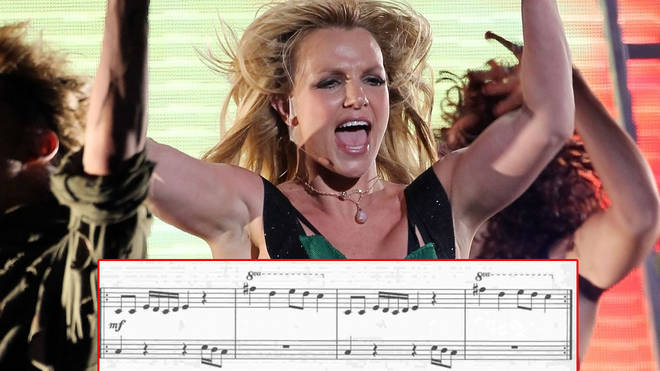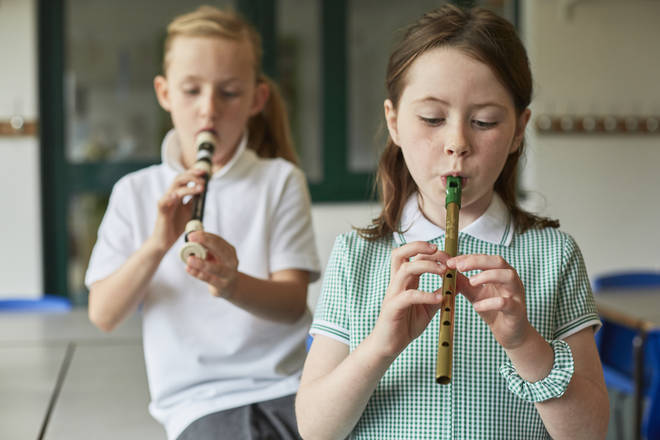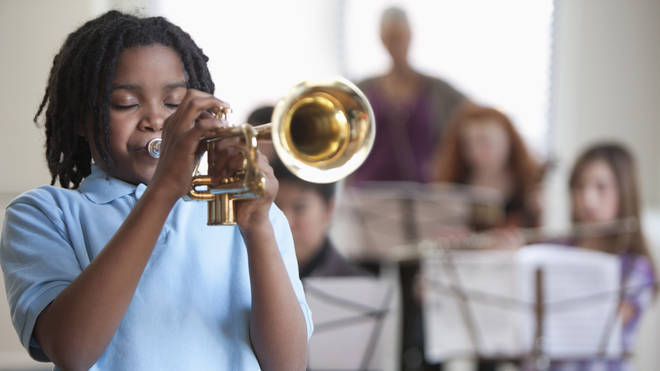... from a classical music perspective

From augmented chords to a random incredible theremin part, these pop songs all give a very pleasing nod to the classical world.
These are undoubtedly the best pop songs of all time (if you’re a classical musician).
Toxic – Britney
Aside from Britney’s iconic vocals, what makes ‘Toxic’ so great is that jarring in the refrain. It’s an unexpected moment of dissonance, and it’s all the more awesome coming from Britney.Good Vibrations – The Beach Boys
It’s impossible to count the number of tempo changes, key changes and bizarre instruments The Beach Boys used to create their biggest pop hit. From a chorus with one of the greatest modulations in music history to an unexpected appearance from a theremin, ‘Good Vibrations’ is the model of an incredible pop song.I Want You Back – The Jackson 5
Weirdly, the bassline of ‘I Want You Back’ is nearly as important as its melody. It starts with a thrilling glissando on keys, followed by a battle between the bassline and rhythm guitar line. Then, a third, completely independent line – the main melody – is added over the top, creating ACTUAL THREE-PART COUNTERPOINT. It gets better and better the more you listen to it.Eleanor Rigby – The Beatles
A killer pop song with… a killer cello part. How often can you say that? ‘Eleanor Rigby’ is just one example of McCartney’s creative genius. Both the lyrics and harmony of ‘Eleanor Rigby’ are eerily melancholic – and that’s largely down to those eerie marcato strings.Lovefool – The Cardigans
Tonally, ‘Lovefool’ never quite makes up its mind. It starts in A minor and occasionally switches into the major, before properly landing in A major for the chorus. But then, the chorus repeats and just when it seems like it’s going to finish in a major key, we’re back to A minor and into the next verse. It’s a tonal tug-of-war, and it’s just brilliant.Scenes from an Italian Restaurant – Billy Joel
A bottle of white, a bottle of red… the intro of ‘Scenes from an Italian restaurant’ is constantly undercut with those beautiful descending piano phrases. But then, we’re hit with a dramatic tempo change (at 3.36): the octave-jumping semiquavers come in, leading into one of the catchiest solo jazz piano sections in the pop-rock history. It’s the best.Bad Romance – Lady Gaga
Gaga outed herself as a true music geek when she opened the music video to her 2009 hit with Johann Sebastian Bach’s Fugue in B minor from The Well Tempered Clavier. We always knew she seemed like someone who’d enjoy a bit of Baroque counterpoint action.Breakfast in America – Supertramp
From a squealing soprano saxophone to a parpy, rhythmic trombone-tuba duet undercutting Roger Hodgson’s vocals, Supertramp are big fans of the brass section. They also use a pleasing harpsichord-esque setting on their keyboard in the opening two bars. We like.Life in a Northern Town – Dream Academy
‘Life in a Northern Town’, most famous for its chorus, is a song brimming with nostalgia, something that's mainly achieved, somewhat unexpectedly, with the wistful sound of an oboe. The instrumentation is dominated by acoustic guitar and various keyboards, but the oboe cuts through beautifully.She’s Like a Rainbow – Rolling Stones
The instrumental passages in ‘She’s like a Rainbow’ might now have been used in about fifteen various car and perfume adverts, but they are still brilliantly original. The opening keyboard refrain, along with the descending strings, sound just like a tinkling music box.Just the Way You Are – Billy Joel
Otherwise known as the ‘demo’ setting on everyone’s childhood keyboard, ‘Just the Way You Are’ opens with a beautifully soothing electric piano solo – but it’s the saxophone solo, expertly performed by Phil Woods, that really takes the biscuit. Have a listen from 3:00.Without You – Harry Nilsson / Mariah Carey
Paul McCartney called it “the killer song of all time” – and its power comes from a bunch of really simple, but really emotive piano chords. The way Nilsson uses the opening chords to build up to the climax of the chorus, only to bring us straight back down again, is just agonising.Single Ladies – Beyoncé
It might not be one of Beyoncé’s more melodic creations, but there are some really interesting bits of music theory going on here. The ‘E’ which runs throughout the song acts as a drone under Bey’s main pentatonic melodies, giving the song a modal feel. But then, she throws in some unexpected chords in the form of siren noises over the top. Why? Because she’s Beyoncé and she can.





